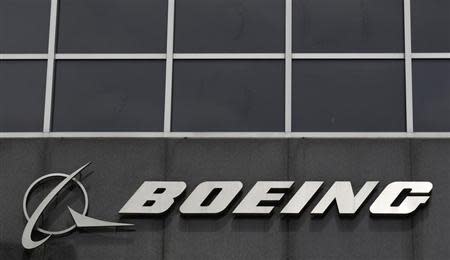Boeing rebuts critical Pentagon report on helicopter parts

WASHINGTON (Reuters) - Boeing Co on Monday rebutted a Pentagon's inspector general report that said the company overcharged the U.S. Army by up to $16.6 million on a $4.4 billion helicopter contract and said it was still waiting to receive the final report under a Freedom of Information Act request. The report said Boeing overestimated how many new parts it would need to build the 181 CH-47F Chinook helicopters under the five-year contract, and then installed largely used parts, resulting in overcharges of $7.4 million to $16.6 million. The inspector general's report faulted the Army for not overseeing the contract properly, and noted it lacked a process to doublecheck Boeing's estimates and track the number of used or new parts that were actually installed. "Boeing recognizes the important work that the Department of Defense inspector general performs. However, with regard to the audit of the CH-47F multiyear contract, we disagree with the IG's conclusions," said Boeing spokesman Damien Mills. Mills said Boeing believed it had complied with government contracting policies under the first firm, fixed-price, five-year contract for the CH-47F helicopters, which called for Boeing to build 109 new helicopters and 72 remanufactured ones, using parts from helicopters returning from use in overseas wars, where possible. Boeing adjusted its proposal for a second five-year purchase of up to 215 additional CH-47F helicopters to reflect the greater than expected use of salvaged parts on the first contract, he said. The Army awarded Boeing a $4 billion contract for 177 more CH-47 helicopters on June 10. The report said its audit of the first acquisition agreement prompted Army officials to revisit the assumptions of the second multiyear agreement, and reduce the amount of new parts to be ordered for the helicopters by $36.8 million. It said it had identified potential overcharges of $10.6 million to $19.1 million, the report said. In its response to the report, the Army said it had negotiated a $15 million savings from Boeing's proposal for the second five-year agreement to reflect lower use of new parts. Bloomberg first reported the Pentagon's inspector general report on Monday and posted a copy on its website. Army officials could not be reached due to the federal holiday, and a partial government shutdown. Boeing's Mills said the company saw and responded to a draft of the report in April. The company filed a request for the final version, but had not yet received it. "The request at this time remains unfulfilled," Mills said. He said the government's policy encouraged greater use of parts from used helicopters to reduce waste. Industry experts said fixed price contracts were carefully negotiated between companies and the government with each side taking on certain risks. For instance, if Boeing had underestimated the amount of new parts required, it would have had to bear the extra cost on its own. The report recommended that Boeing should be required to clearly identify the amount of new parts "contingencies" included in the second multiyear purchase agreement. It also faulted Boeing for being unable to track installation of parts on a specific remanufactured helicopter. The report also called for the Army to better manage government-owned parts at a private facility, instead of relying on Boeing to oversee the work there. In a response to the report, the Army said better tracking was now being implemented. It also noted any unused parts left at the end of the contract would revert to the Army. (Reporting by Andrea Shalal-Esa; Editing by Leslie Gevirtz)

